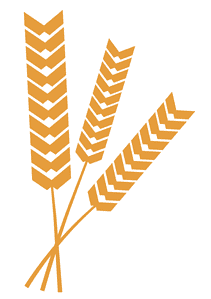
fun facts about the "dairy holiday" Learn about Shavuot
Shavuot, also spelled Shavuos, marks the giving of the Torah at Mount Sinai. This significant holiday is celebrated by studying Torah, reading the Book of Ruth, and enjoying dairy foods. It occurs seven weeks after Passover (Pesach), completing the counting of the Omer.
Significance and Customs
- Giving of the Torah: Shavuot commemorates the momentous occasion when the Torah was given to the Israelites at Mount Sinai. It is a time for Jews to reaffirm their commitment to Torah study and observance.
- Torah Study: It is customary for many Jewish communities to stay up all night studying religious texts, known as Tikkun Leil Shavuot, to honor the gift of the Torah.
Celebrations and Activities
- Reading the Book of Ruth: The Book of Ruth is read on the second day of Shavuot. This story highlights themes of conversion, loyalty, and the harvest, and features strong female characters.
- Hearing the Ten Commandments: It is customary to hear the reading of the Ten Commandments on the first day of Shavuot, as a reminder of the covenant made at Mount Sinai.
Festive Foods
- Dairy Foods: Shavuot is affectionately known as the "dairy holiday" due to the tradition of consuming dairy products. Popular dishes include:
- Blintzes: Delicious rolled pancakes often filled with cheese.
- Cheesecake: A rich and creamy dessert that is a staple on Shavuot tables.
- Macaroni Pizza: A unique and fun dish enjoyed by many.
- Rice Pudding: Known as sutlach, this is a traditional Sephardic treat.
- Wheat Harvest: Shavuot also celebrates the wheat harvest, connecting the holiday to agricultural themes.
Fun Facts and Traditions
- Staying Up All Night: Many Jews engage in an all-night Torah study session on the first night of Shavuot, known as Tikkun Leil Shavuot.
- Crafts for Children: Children participate in Shavuot through various crafts, such as making paper flowers, symbolizing the spring harvest and the beauty of nature.
- Spelling Variations: Shavuot can also be spelled Shavuos, reflecting different pronunciations and traditions.
Symbolism and Themes
- Agricultural Roots: Shavuot is one of the three pilgrimage festivals and has deep agricultural roots, celebrating the wheat harvest.
- Spiritual Renewal: The holiday is a time for spiritual renewal and recommitment to Jewish learning and values.
Shavuot is a joyful and spiritually significant holiday that celebrates the giving of the Torah and the bounty of the harvest. With its rich customs, festive foods, and emphasis on study and community, Shavuot is a time of renewal and connection for Jewish people around the world.
